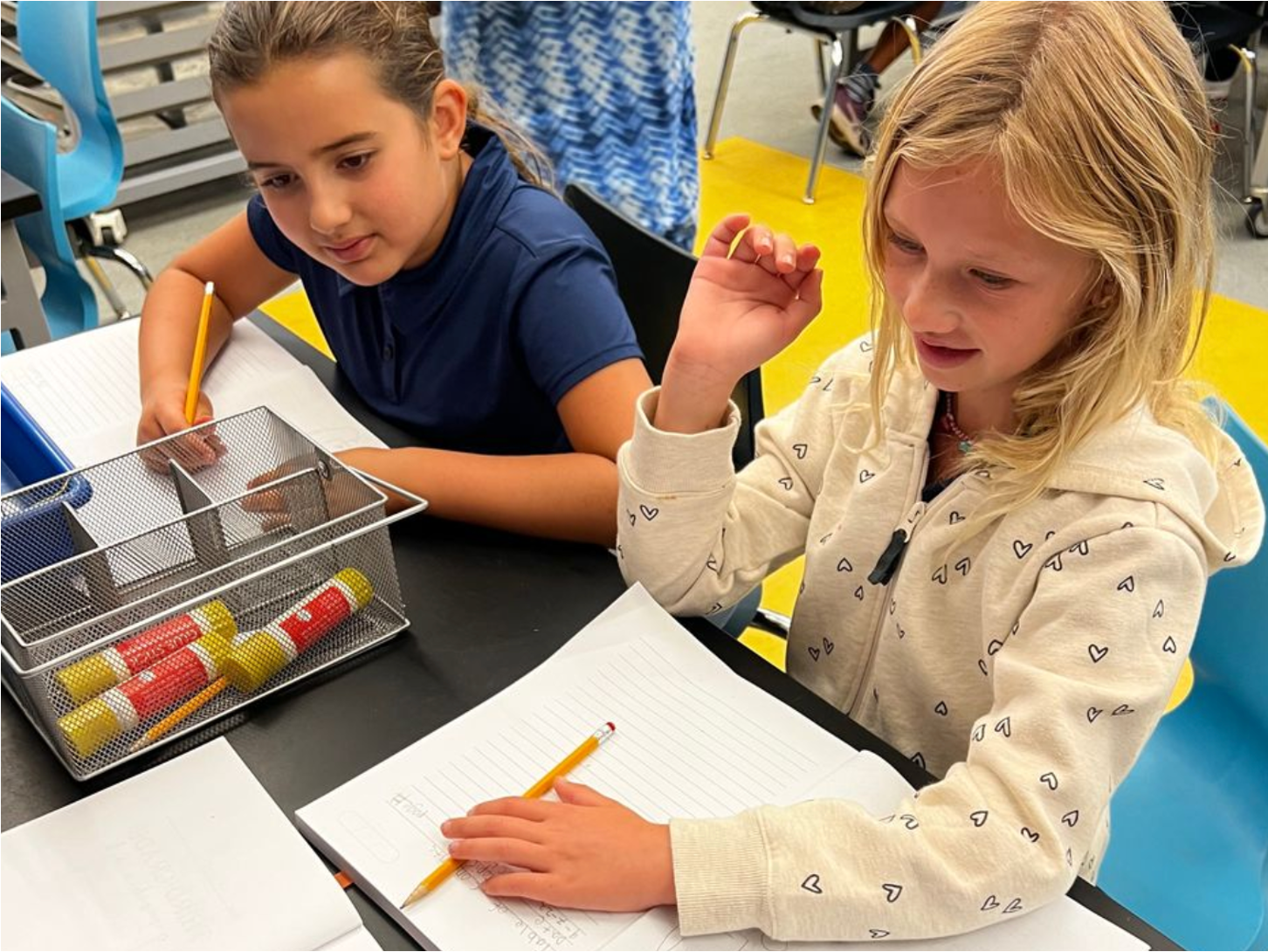“I looked up who the author is and the real person’s name is called Wendy and it’s based off that’s her daughter.”
3rd Grade readers and writers are midway through their class read-aloud of Out of My Mind, a novel narrated by Melody, an eleven year old girl with cerebral palsy, written by Sharon Draper based on her experience as a teacher, therapist and parent. This week, students read aloud the chapter in which Melody gets a medi-talker device, allowing her for the first time to speak phrases and share her thinking with classmates, teachers, and her parents. Belittled and stereotyped, Melody has been assumed all her life to be less smart than she is because her body is disabled. The story tells about elementary school life through her perspective, both the recognizable elements, like school events, friendship and competition, but also the less familiar challenges that Melody faces every day in trying to move around, use the bathroom, make friends, and eat lunch at school. Students paused in their reading to share connections to self and to other texts they have read, to practice making predictions and inferences, and to use context to approximate definitions for words like trivia or petulant: “Maybe the teacher said it like that because he was surprised and didn’t think she could do it.”
Students this week for homework also wrote a letter to the character, Melody, introducing themselves, saying a few things they liked about the story, and asking the character at least two questions. Students wrote things like, “To tell the truth, I am learning so much about cerebral palsy and how it feels. I learned that if someone has a disability, you should treat them the same way you treat others. Do you like ice cream?”
To tell the truth, I am learning so much about cerebral palsy and how it feels. I learned that if someone has a disability, you should treat them the same way you treat others. Do you like ice cream?
Next week, teachers will send all our students’ letters to the author! At Hillbrook, we learn active reading strategies while also using stories as ways to practice empathy and learn about others’ lived experience. These help us be our best, develop perspective-taking, and feel the power of reading and writing to create authentic human connection.

